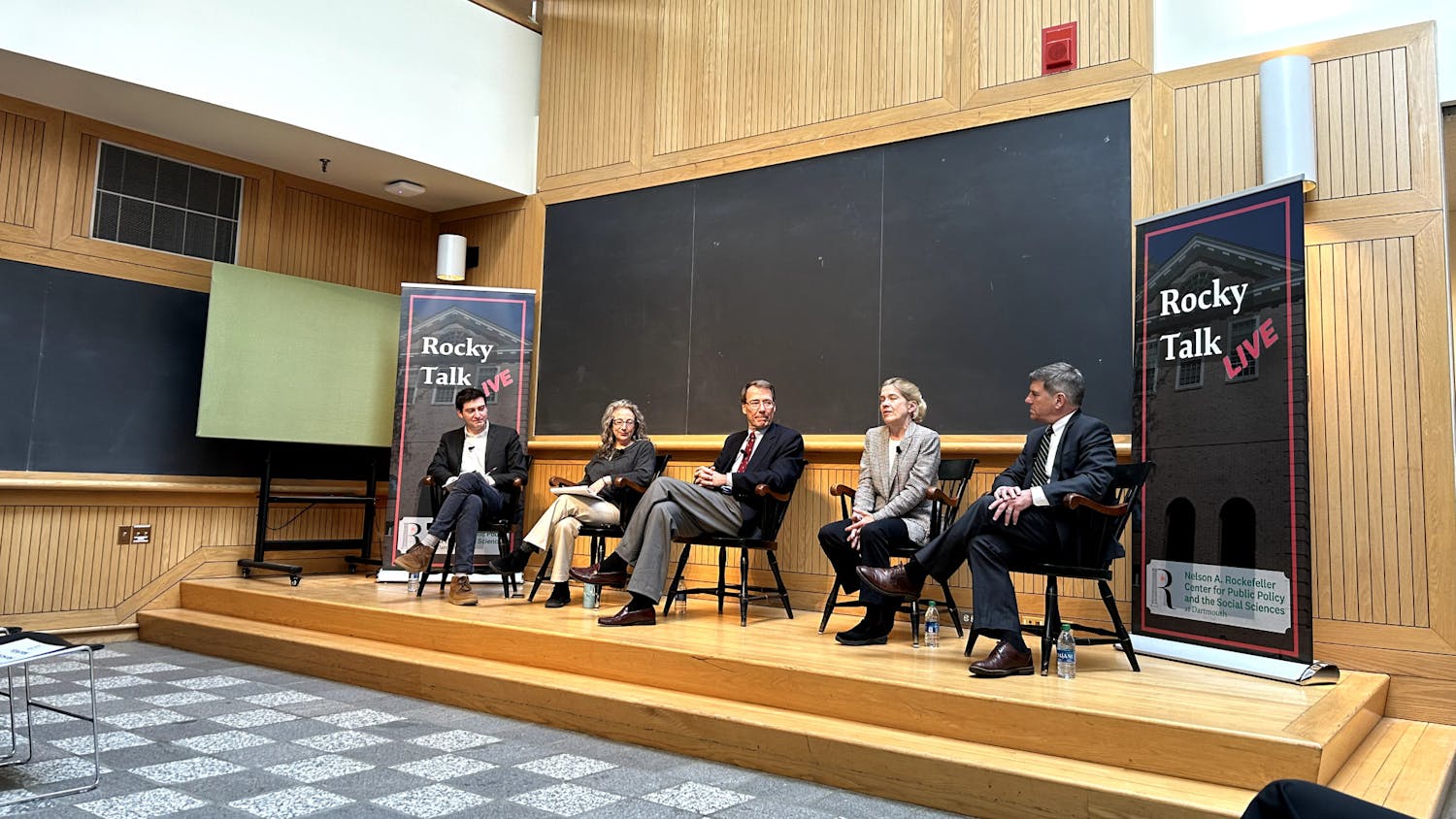On June 26, writer and professor Megan Fernandes held a poetry reading in Dartmouth Hall, where she read excerpts from her upcoming poetry collection, “I Do Everything I’m Told,” which will be published by Tin House in Summer 2023.
Born in Canada and currently living in New York, Fernandes is a widely acclaimed writer and English professor at Lafayette College. Her second book of poetry, “Good Boys” was a finalist for the Kundiman Book Prize, the Saturnalia Book Prize and the Paterson Poetry Prize. Her work has appeared in The New Yorker, The American Poetry Review and The Chicago Review, among other publications.
The reading was the inaugural event of the Asian American Ampersand Series, which aims to provide the Dartmouth community examples of what is lacking in terms of Asian American studies, issues and desires on campus. The Dartmouth Asian American Studies Collective and the Dartmouth Asian Pacific American Alumni Association worked together to organize events that allow students to express and learn about the Asian American experience, according to women’s, gender and sexuality studies professor Eng-Beng Lim. The reading was sponsored by the Charles and Elfriede Collis Professorship in History and the Program in women’s, gender and sexuality studies, with support from DAASC and DAPAA.
“We are thrilled to have Professor Fernandes as the first speaker in our series,” Lim said. “The turnout was tremendous, and the engagement was very vibrant. It was a very nice way to think about Asian American studies more broadly, as a creative as well as a critical venture.”
Fernandes encouraged the audience to engage with her poetry by inviting a row of the audience to read aloud her sonnet crown — a sequence of seven individual poems addressed to seven different cities, in which the last line of the first poem became the first line of the next poem. Paired with the sonnet crown was a series of erasure poems, in which Fernandes removed large portions of the text of each sonnet to create wholly new works. Fernandes combined the seven erasure pieces into a concluding poem, whose disjointed language encapsulated the series’ progression from city to city.
Sasha Usher ’25 said they heard about the event through the course WGSS 65.06, “Radical Sexuality,” taught by Professor Lim. As someone who does not actively seek out poetry in their everyday life, Usher said they appreciated the humor and casual tone that Fernandes brought to the reading. Usher said it made both the discussion more engaging and the broader themes of travel and identity in Fernandes’s writing more approachable.
“It made the meaning of her work way more accessible than it would have been if another professor had sat down with a very intentional, serious tone emphasizing the weight and significance of what they are going to say,” Usher said.
Fernandes explained the large role that reading her work aloud plays in shaping her verses. Specifically, she draws from the Pacific Island poetic tradition of measuring one’s breath capacity per syllable and is very conscious of the number of breaths that it takes to read a poem.
“It is a form of self-sovereignty because holding your breath is symbolic in this kind of poetry in particular,” Fernandes said. “American poetry you write with your lungs; British poetry you write with your heart.”
Throughout the event, Fernandes reflected on the many reasons why poetry resonates with her more than other kinds of writing.
“I have ADHD, so I have a really short attention span and love things that are super epiphanic, that get to the point,” Fernandes said during the Q&A session. “I think you can compress time and space in poetry. You can go from Jupiter to a lighthouse to your childhood bedroom, can make those kinds of cognitive, imaginative leaps… In terms of scale, you can do so many more fun, sporadic things with poetry.”
Fernandes was critical of heavily esoteric poetry, and said she seeks to write poetry that is relatable.
“I don’t want to be omniscient when I write poems,” Fernandes said. “I want us to be walking through the world together like we’re homies.”
At the same time, Fernandes said she tries to remove her own identity from her work. In an interview with The Dartmouth, Fernandes said that she is “suspect of similitude in place of recognition,” hoping instead that readers can truly see themselves in the verses.
During the Q&A, several students were curious about Fernandes’s educational background, especially after she explained that her studying biology was largely influenced by family expectations. One audience member asked how Fernandes decided to pursue poetry after college.
“If you’re an artist, you really have to give up a lot to be obsessive about what you want to do,” Fernandes said. “A lot of getting to this point is hustle, and a lot is luck. Sometimes I write my best poem in 10 minutes, but that is because of the last 10 years of work… It might not pay off, but I think it will in the end.”




